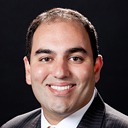Losing the blood-dimmed tide
By Glen A. Sproviero | July 21, 2016, 18:39 EDT
 (Courtesy of Flickr)
(Courtesy of Flickr) For a generation predisposed to accept the merits of the idea of Progress (with a Roman P), world events have a proved a dispiriting, and truth be told, denigrating illustration of that theory’s delusional ambitions.
Against the backdrop of international terrorism, increasing domestic discord, and the collapse of objective standards of societal behavior, the apologists of Progress can point to no fixed law of social advancement by which our conditions perpetually improve. Rather, they stare upon vistas of dead bodies, objectified human persons, widespread social boredom, and rampant self-indulgence. Progress is a failed god, and in its wake, it leaves a trail of blood and a sea of tears.
But if the terrors of the twentieth century, with its concentration camps and gulags, its world wars and its cold wars, did not once and for all dispel the notion of Progress as an omniscient God, why should the present state of culture and politics debunk that naïve optimism? Are we to chant Hallelujah as we watch civilization fracture?
In his apocalyptic poem “The Second Coming,” William Butler Yeats wrote: “Turning and turning in the widening gyre / The falcon cannot hear the falconer; / Things fall apart; the centre cannot hold; / Mere anarchy is loosed upon the world, / The blood-dimmed tide is loosed, and everywhere / The ceremony of innocence is drowned. / The best lack all conviction, while the worst / Are full of passionate intensity.”
A Second World War, the unleashing of nuclear power, the rise of Soviet communism, and a collision with Islam are just some of the events that defined a century of unprecedented violence and destruction.
When Yeats published this in 1919, he had just lived through the horrors of the “war to end all wars.” But in these words, we can see the ghostly premonition of the terrors of the century ahead. His words were more than a reflection, they were a warning in letters fire. It was a warning whose very substance was realized more than the pessimistic Yeats could have ever imagined. A Second World War, the unleashing of nuclear power, the rise of Soviet communism, and a collision with Islam are just some of the events that defined a century of unprecedented violence and destruction. While the Middle Ages are often referred to condescendingly as “dark,” no time in human history was bleaker than the twentieth century with its dedication to the advancement of “humane,” scientific methods of exterminating others on the battlefield and in the streets.
Now, in the twenty-first century, Yeats’ reflection on the West’s growing anarchy constitutes a particularly important warning.
Wave after wave of terrorist attacks shows the vulnerability of the West to barbaric acts of violence. No longer safe within the tranquility of our communities, each of us is keenly aware that we are increasingly susceptible to the vicious appetites of Islamic radicals and their rand of ideological nihilism. Where we were once confident that the West was an impregnable fortress, we are not wrong to now question the safety of our daily commute and our ability to enjoy a simple fireworks display without fear.
But the extremism of radical Islam is only one part of a much larger social and political dilemma. While we have shown absolute ineptness with respect to international terrorism and foreign policy, the depth of our failures is even more prominent with respect to home affairs.
In this climate, we are no longer neighbors or participants in a single community, but atomistic individuals who live alongside one another in a state of constant suspicion and envy.
In the United States, lawless revelers take to the streets at each and every opportunity to protest the alleged injustice du jour. Not since the 1960s have race relations experience such unnecessary strain, while class warfare masquerading under the euphemism of “income inequality” has become the obsession of the Progressive establishment. Mass murders and workplace violence are on the rise.
In this climate, we are no longer neighbors or participants in a single community, but atomistic individuals who live alongside one another in a state of constant suspicion and envy.
Moreover, the West’s dismissal of universal standards of moral judgment in favor of a notion of Progress untethered to any historical norms, even in the face of increasing violence and social disorder, renders our cultural defenses ineffective. In essence, the “centre cannot hold” because there is no consensus as to what constitutes the “centre.” Defending something that barely exists is no easy task, if it is even possible in the first place.
In the absence of universal standards of conduct gradually developed through the ages, a culture will lose its defining features, and ultimately, the very essence of its being. When work is separated from reward, rights are divorced from duties, and moral neutrality prevails as the dominant ethical dogma, it is all but certain that things will fall apart while “anarchy is loosed upon the world.”
In a very real sense, our world is spinning out of control: our traditions have been discarded in favor of ephemeral fads; our ancient faith has been mocked as myth and superstition, even as Progressive ideologues erect new secular gods to take its place; ends are confused with means; and our respect for the intrinsic value of the human person has all but evaporated. The result is the blood-dimmed tide of violence and sorrow that we see in each news cycle.
And while we observe recent events in our world with a sense of righteous horror, we are too quick to ignore the part we play in allowing such evil to thrive. Passive indignation is insufficient to challenge the murderous thugs who kill and maim innocent civilians; rather, we must come together as a culture to reaffirm the value of life at all stages, to ensure that we stand united in defense of those commands handed down at Sinai, and, like the Tao, are known to other cultures in the form of a universal natural law. “Thou shalt not kill” is not merely a Judeo-Christian teaching, but a principle that transcends cultures and time.
Ultimately, political solutions are inadequate to stop the violence plaguing our world. Men have always fought, and fight they will until the end of time; nevertheless, we can teach our children that each person is made in the image and likeness of God, and as such, is entitled to the respect accorded to God’s creation. That will be a more effective means to combat violence than any gun control measure or immigration policy could ever hope to achieve.

Glen Sproviero
Glen A. Sproviero is a commercial litigator in New York. Read his previous columns here.











